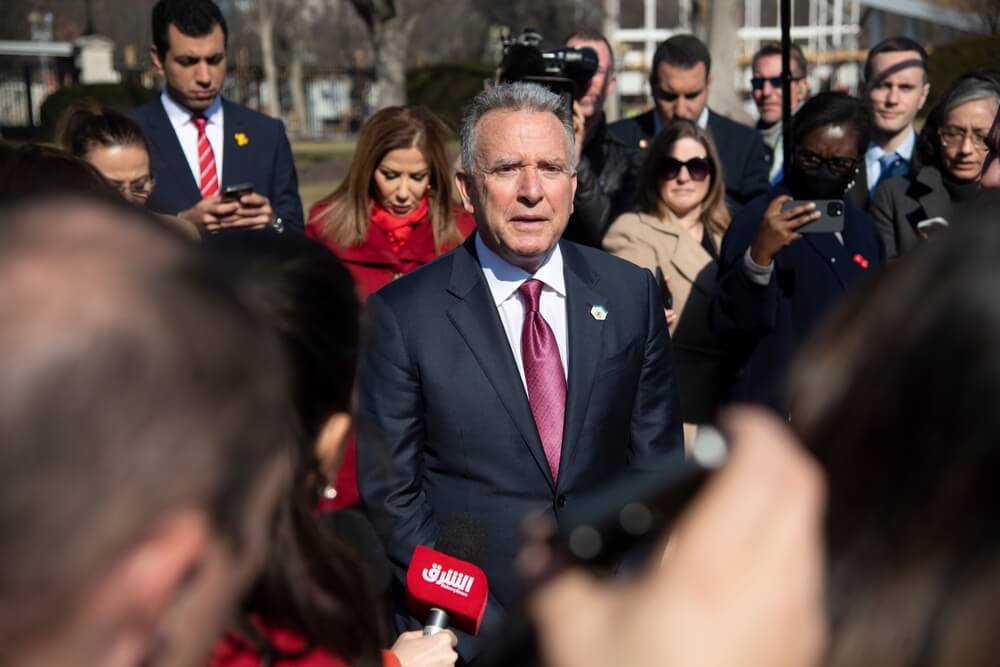Will Washington really be able to broker a peace deal between Morocco and Algeria over the long-standing sore of Western Sahara within 60 days as promised by Steve Witkoff, Donald Trump’s special envoy?
He made the promise on 23 October in an interview on CBS, saying: “There will be a peace agreement, in my opinion, within 60 days.”
On 31 October, the UN Security Council approved a US-backed resolution supporting Morocco’s claim to the disputed Western Sahara by referring to “genuine autonomy under Moroccan sovereignty” that makes “a most feasible solution.”
The text makes no mention of a referendum on self-determination that includes independence - long preferred by Algeria, Russia, China, and the Polisario Front - which in 1976 declared the Sahrawi Arab Democratic Republic in Western Sahara, unrecognised by the world’s major powers.
Eleven countries voted for the UN resolution, while Russia, China and Pakistan abstained and Algeria opposed. Morocco is jubilant, declaring that henceforward 31 October will be a national holiday to be known as Unity Day to celebrate the country’s “territorial integrity”.
A rocky road ahead
No sooner was the ink dry on the resolution than strong objections emerged, illustrating the rocky road ahead as a seemingly undaunted Trump pursues a Nobel Peace Prize.
The Sahrawi people say they will not give up their fight for self-determination in Western Sahara, and Polisario says it will not join any process aiming “to ‘legitimise’ Morocco’s illegal military occupation.”
The Trump administration is ignoring the UN’s designation of the people of Western Sahara as essentially waiting to be decolonised
The resolution “is an abandonment of the Sahrawi people” and “an abandonment of decades of international law,” wrote Carne Ross, a former British diplomat who has worked as an advisor to Polisario.
“It’s as if the US forced the UN to endorse Israel’s occupation of Palestinian territories, but this time it’s one Arab country occupying another,” he said.
It will surprise no one that the Trump administration is ignoring the UN’s designation of the people of Western Sahara as essentially waiting to be decolonised.
The territory was colonised by Spain in 1884, and as it prepared to withdraw in 1975, Morocco launched a Green March of 350,000 people that led to Morocco’s annexation and occupation.
“A non-self-governing territory”
A 1975 ruling by the International Court of Justice said no “ties of territorial sovereignty” existed between Western Sahara and Morocco, and in official UN language, Western Sahara is a “non-self-governing territory”.
Even the EU and the UK - which pay more attention to the tottering architecture of post-Second World War international legal norms - seem more concerned with preventing any resumption of violence that could spark a flow of migrants towards Europe.
Any settlement must be “based on the Sahrawi people’s right to self-determination" - Staffan de Mistura, UN envoy for Western Sahara
A UN peacekeeping mission has been deployed in the region since 1991, and the recent UN vote also renewed their mission for another year, although right-wing hardliners in the US and Morocco are pushing for its dismantlement as well as designating Polisario as a terrorist organisation.
Should the UN peacekeeping mission, MINURSO, depart, the fear is that Morocco would cross the 2,700 km-long sand berm it built in Western Sahara and attempt to capture the eastern half of the territory outside its control and risk conflict with Algeria.
Staffan de Mistura, UN envoy for Western Sahara, insisted at a press briefing after the UN vote that the resolution did “not impose a predetermined outcome” and that any settlement must be “based on the Sahrawi people’s right to self-determination.”
An opportunity to railroad a peace deal through
But the Trump team, which sees an opportunity to railroad a peace deal through, appears invested in Morocco’s autonomy plan, regardless of the fact that few Sahrawis believe Morocco would grant any credible form of autonomy worthy of the name and even fewer want to live under Moroccan, monarchical rule.
 The UN will have to exercise all its diplomatic finesse, ideally without any heavy-handedness from Washington, to reassure Polisario and Morocco that talks will focus on a solution in line with international law - Steve Witkoff
The UN will have to exercise all its diplomatic finesse, ideally without any heavy-handedness from Washington, to reassure Polisario and Morocco that talks will focus on a solution in line with international law - Steve Witkoff
Few young Moroccans want to either, judging by the recent Gen Z protests in which 400 people were arrested after demonstrating against widespread unemployment and shaky social services.
More than 170,000 Sahrawi refugees live in camps in western Algeria’s Tindouf province, the vast majority of whom are reliant on humanitarian aid, which has been slashed this year by Trump and other governments. A UN report released in June said acute malnutrition in the camps was 13.6%.
Polisario’s position is that it is willing to negotiate without preconditions and to discuss shared arrangements with Morocco that could be put to a referendum.
Few see the group as wanting to return to active hostilities, which have only simmered in recent years compared with fierce fighting between Polisario and Morocco before the arrival of the UN peacekeepers.
But a younger generation of Sahrawis is impatient, much like their Moroccan counterparts.
The UN will have to exercise all its diplomatic finesse, ideally without any heavy-handedness from Washington, to reassure Polisario and Morocco that talks will focus on a solution in line with international law.
“Wording to this effect, which does not tie talks exclusively to [Morocco’s] autonomy plan, could allow the Sahrawi movement sufficient cover to come to the negotiating table and would, in turn, facilitate movement towards an Algerian-Moroccan detente,” said the European Council on Foreign Relations.
Witkoff’s clock is ticking.